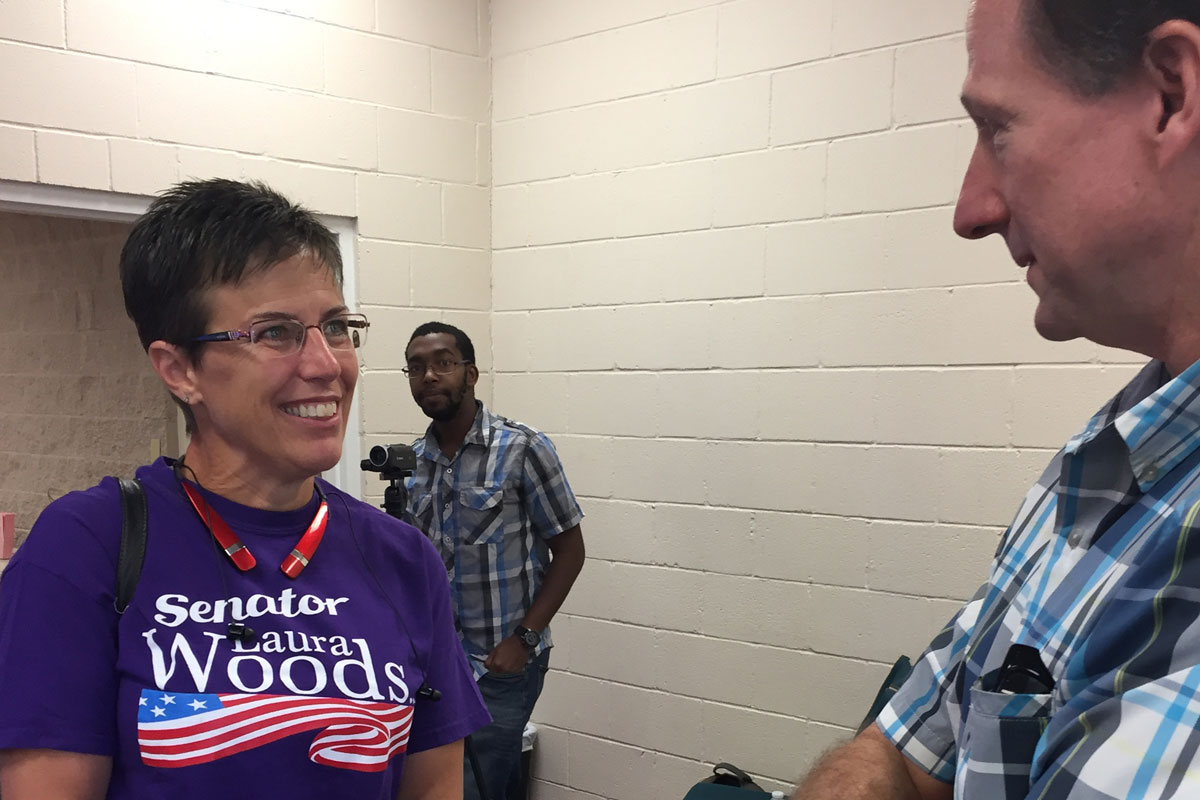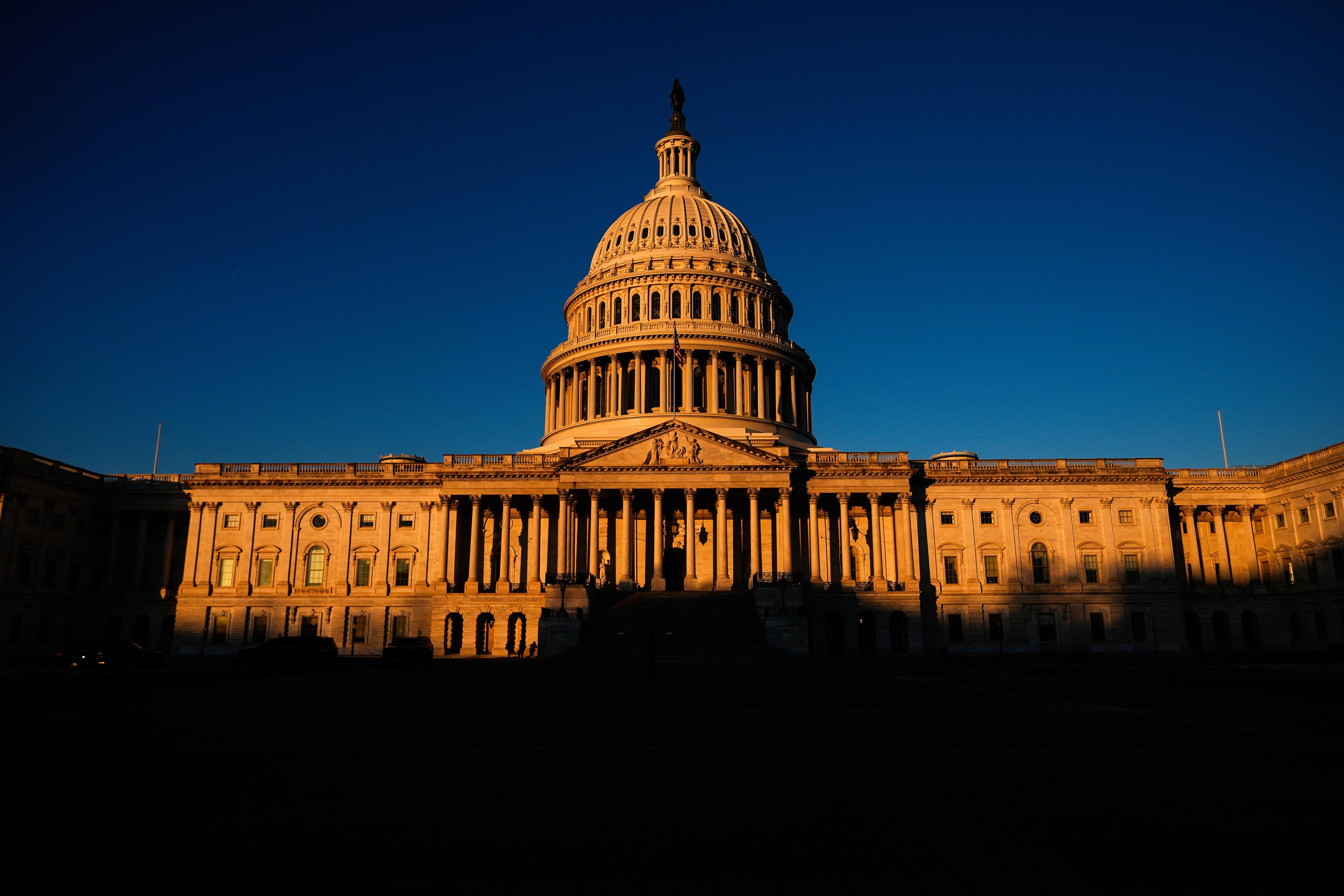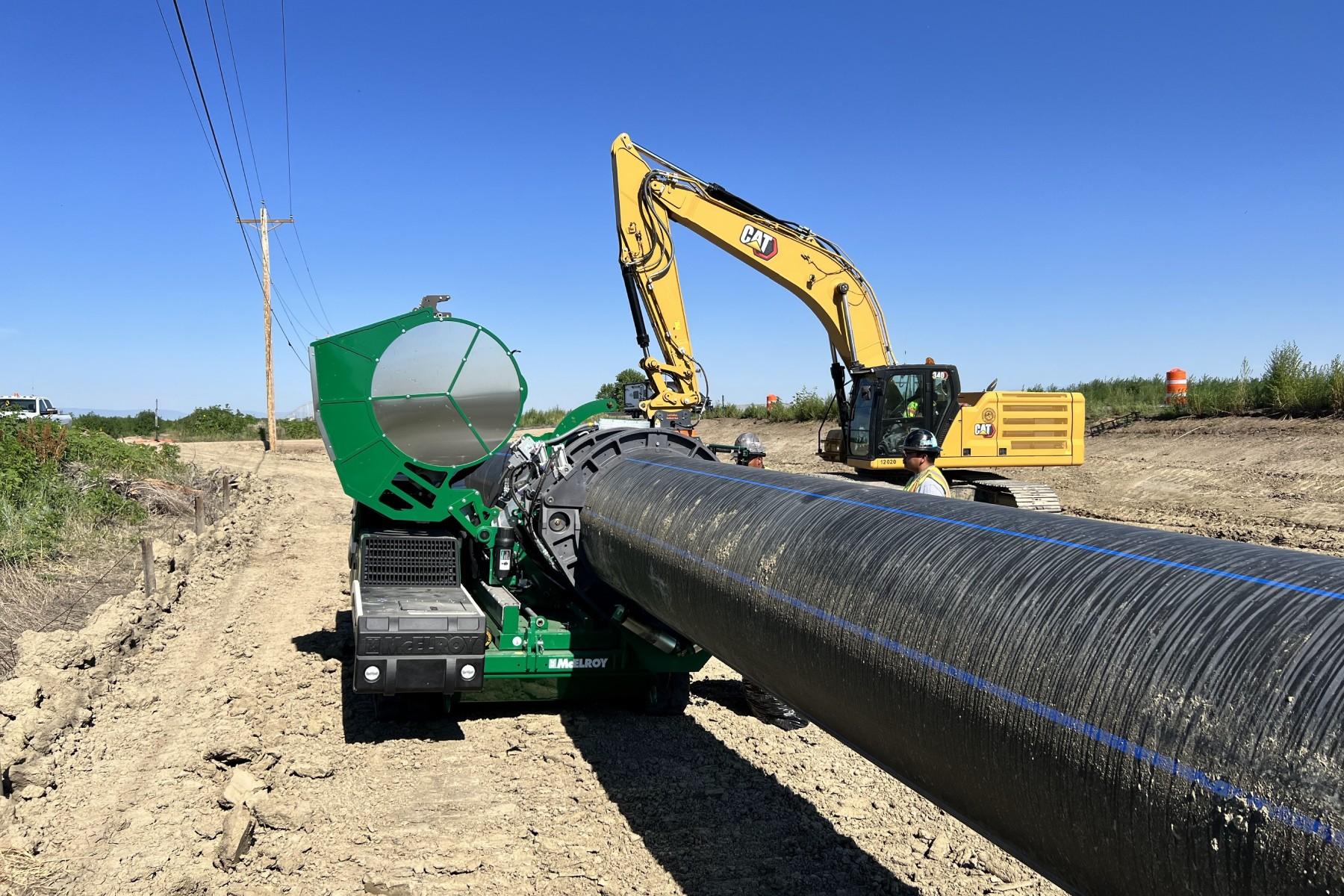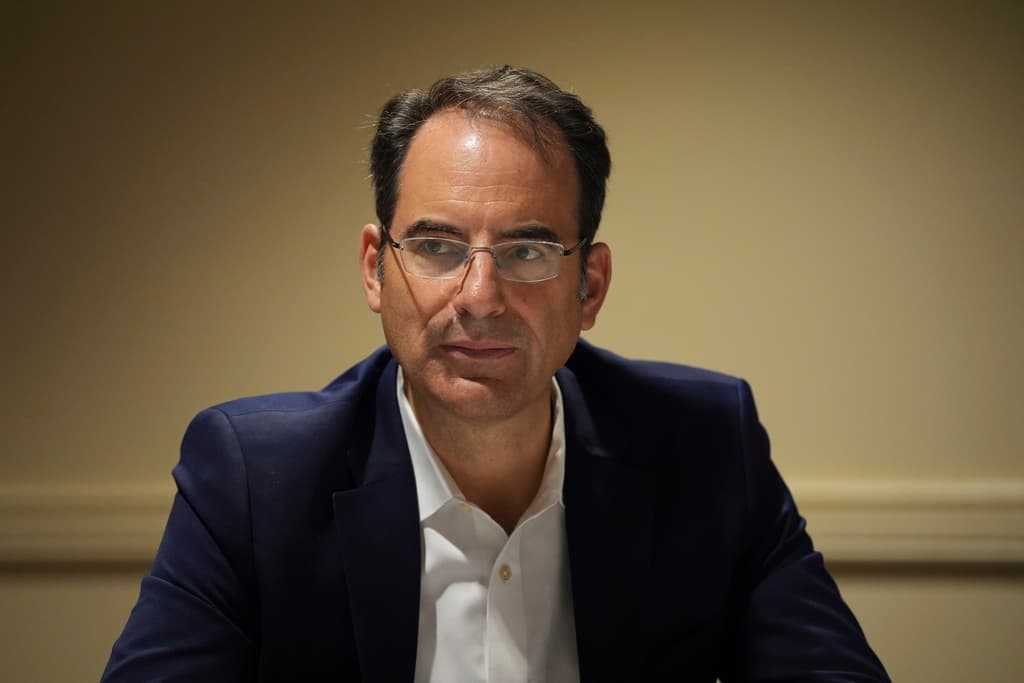
With the Colorado House considered to remain safely in Democratic hands, the Senate is the prize both parties will arm wrestle for in November. Right now, Republicans hold a one-seat senate majority.
That’s why Democrat Rachel Zenzinger has been canvassing neighborhoods in Arvada and Westminster, knocking on thousands of doors.
“It gets you in shape, that’s for sure,” she said with a laugh, walking down a residential block in Arvada. “But you have to watch out for little divots in the sidewalk so you don’t trip. And sometimes you curse your manager when she gives you apartments with a lot of stairs.”
Zenzinger briefly held the Senate District 19 seat in 2014, following Sen. Evie Hudak’s resignation, but lost it to current Republican Sen. Laura Woods by just a single percentage point that same year. Evenly divided when it comes to voter registration, the district is a third Democrat, a third Republican and a third unaffiliated. A few voters swayed, a few extra knocks on the door or a few dozen yard signs could mean the difference between who wins and who loses. Current political consensus holds that the Woods-Zenzinger contest is one of three races that could determine whether Republicans hold on to control.
“Everybody and their mother thinks that this is going to be the one that flips the Senate or keeps it in Republican hands, so it’s a war zone,” said Ian Silverii, executive director of Progress Now, a liberal advocacy group working to get progressives to the polls in November.
Republicans view the Senate as their firewall.
Sen. Kevin Grantham, R-Canon City, the leader of the Senate Republicans’ campaign effort to maintain its majority, reminds voters what it was like when Democrats last controlled business at the capitol – the 2013 and 2014 sessions. With Democrat John Hickenlooper in the governor’s chair, legislation was passed that infuriated Republicans, like gun control measures, reforms to the election process and renewable energy mandates for rural parts of the state.
“Is that what we want to go back to?” Grantham said. “Is that what we’re prepared for as single party rule, where there’s no room for debate; there’s no room for compromise? It was just ‘do what we want to do’ from their standpoint.”
Republicans say Democrats’ spending priorities are out of whack, that too much money goes into paying for programs like Medicaid, while not nearly enough is spent on fixing or adding capacity to Colorado’s aging and crumbling highways. Zenzinger’s opponent, incumbent Sen. Laura Woods, said you could expect “more taxes, more regulations, more government interference or oppression on businesses and citizens’ liberties” if her party loses their senate advantage.
Woods suggests Democrats may use their majority to pass measures that voters may not support on the ballot in November, including Amendment 69, the universal health care system known as ColoradoCare. Or maybe they’ll wade into Colorado’s simmering debate over oil and gas development.
“Would they try to run some of the anti-fracking measures that didn’t make the ballot? Perhaps,” she said.

If her party wrests control, Zenzinger said things will get done at the capitol.
“I think it’s no secret that the last two years, we didn’t get very much done,” the Democratic challenger said. “It was very partisan and a lot of bickering and people not being willing to cooperate with one another.”
Zenzinger and other Democrats say if they win, they will focus on issues like affordable housing and trying to reclassify the hospital provider fee, which would eliminate tax refunds and give the state more money to spend. That would provide some money for transportation and education as the state faces a budget shortfall.
“I think that those kinds of practical solutions are the kinds of things you will see if you have a Democratically-controlled Senate,” Zenzinger said.
Just Like The Candidates, Outside Groups Realize The Stakes
With an expected high presidential year turnout and so much on the line in November, both parties are working to mobilize voters.
“You’ve got a giant machine trying to get you to vote and to vote for the right candidate,” said Norman Provizer, a longtime political science professor at Metropolitan State University of Denver. “That doesn’t exist nearly as much during just state and local elections. And that’s why turnout can be abysmal in those elections.”
That machine includes outside groups working to affect the outcome of these legislative races. Americans For Prosperity – one of the largest conservative groups in the country – has been spending a lot of money in the Adams, Arapahoe and Jefferson County legislative races. The group insists its efforts are issue, not candidate, focused, but AFP’s positions on local issues align with most Republicans, like its opposition to reclassification of the hospital provider fee.
“We don’t really disclose the exact amount we spend, but we’re definitely doing mailers, we’re doing digital ads,” said AFP Colorado executive director Michael Fields. “But the majority of what we do is getting our volunteers and activists out to hit doors, to talk to their neighbors about these issues.”
Metro State's Provizer said the fact that national groups like AFP, as well as groups on the political left, are throwing money at Colorado statehouse races shows the significant role state governments have in affecting policy-making decisions at the national level. But the question remains, why do national groups care about what happens in a local Colorado election?
“Well, they probably don’t care very much about Colorado, but they do care about the power connected to what happens in Colorado and how the power at the lower level can really manifest itself as you move up the scale in political power in the United States,” Provizer said.
Andrew Short, the executive director of the Democratic Senate Campaign Fund, said he’s telling voters that there’s more at stake than who wins the White House or the U.S. Senate.
“(We’re) reminding them how important it is to vote up and down the ballot and the impact state legislative races have on the everyday lives of all Coloradans,” he said. “We remind them that all politics is local. And the real change that they want to see happen in their lives is going to happen at the local level.”
When it comes to turnout in the unusual election year that is 2016, all bets are off. Will turnout be watered down by two presidential candidates that are highly unpopular? Grantham, the Senate Republicans’ campaign leader, isn’t worried about voters taking their frustrations out on down-ballot candidates.
“Colorado voters are smart enough to see past the top of the ticket,” he said. “And you’ll see them split the tickets quite often, and even if they don’t like the top of their ticket they’re still going to vote down-ballot.”
Three Key State Senate Races To Watch
1. Senate District 19: Incumbent Sen. Laura Woods (R) versus Rachel Zenzinger (D)
2. Senate District 25: Rep. Kevin Priola (R) versus former Rep. Jenise May (D)
Current seat holder Sen. Mary Hodge is term-limited, twice easily winning re-election in a district where Democrats have historically done well. Republicans see Adams County as a new battleground though after they did well in 2014, winning local races many didn’t expect them to win.
Before losing her House District 30 seat, May served on the legislature’s important Joint Budget Committee. Priola, who represents House District 56, is term-limited in a seat he has been elected to four times.
3. Senate District 26: Nancy Doty (R) versus Rep. Daniel Kagan (D)
This seat is currently held by Democratic Sen. Linda Newell, who is term-limited. Kagan is also term-limited in House District 3, which he’s held since 2009.
Kagan has won tough races in his district, but this contest against Doty, an Arapahoe County commissioner, could be his toughest. Democrats have a voter registration advantage here, but unaffiliated voters make up the largest percentage of the electorate.








